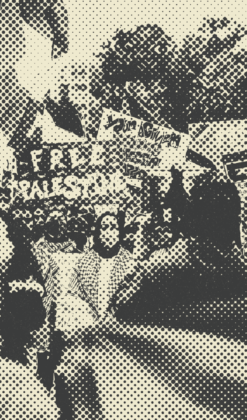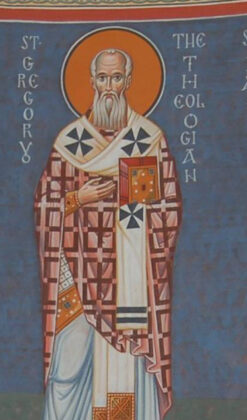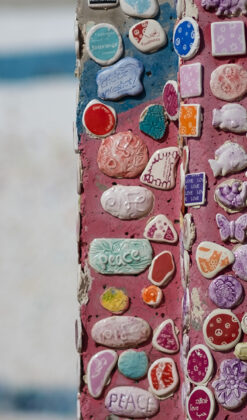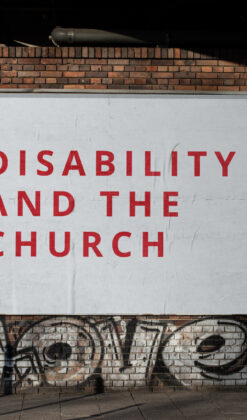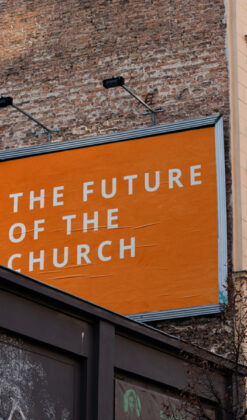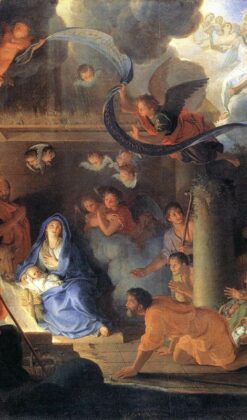I just arrived in San Diego for the Evangelical Theological Society’s annual meeting. I’ll be presenting a paper this afternoon on sexual orientation along with Denny Burk and Wesley Hill, and I’m participating on a panel discussion on Paul and the Law on Friday afternoon. I’m mostly excited about connecting with old friends and making some new ones. The last time the ETS meeting was in California, it was in San Francisco. That was probably my most memorable conference, though it had little to do with the actual conference. As some of you may recall, I wrote about it in my book Charis: God’s Scandalous Grace for Us. Here’s my reflection as recorded in Charis.
**********
In the fall of 2011, I had a surreal experience. I attended a Christian conference at an upscale hotel, where theologians read papers to one another. Yes, these scholars are brilliant. But literally, they read papers to each other. I attend this conference every year. It’s a lot like going to the zoo. Many animals are brilliant, though they live boring lives—detached from the real world. I especially like the monkeys. They’re the most brilliant, but watch out for the poo. The similarities are endless.
The conference is held just before Thanksgiving, this year in downtown San Francisco—one of the most depraved cities in the country. It happened that my friend and well-known speaker Francis Chan was working in the inner city one mile from where the conference was held. So after listening to theological papers for two days, I spent two hours with Francis in the inner city. I visited City Impact, the ministry where Francis was serving at the time. After slurping down some tasty Vietnamese pho, we delivered food and toiletries to impoverished people living in low-income housing in the inner city—three blocks from the upscale hotel where our Christians were reading papers to one another.
The contrast between the two days at the conference and two hours in the inner city was mystifying. That afternoon, I met lots of cool people in the Boyd, the name given to the low-income apartment complex where Francis and I distributed goods. The tenants lived in one-room flats with a bathroom down the hall, and they all lacked basic necessities in life. Food, clothing, love, toiletries, and much more. One woman, Lisa, lacked more than food. She lacked four fingers on her right hand and got by with just a thumb. She also lacked her two kids, who were taken away from her and now live in Texas. Moses, the man down the hall, hadn’t seen his family members in almost three years, but glowing with jubilance, he told us that he was going to see them in a week at an upcoming Thanksgiving meal. For Moses, that Thanksgiving would be more than suburban gluttony. He was truly thankful that he’d see his family, and his thankfulness welled up in his eyes as he imaged the reunion.
Everyone I met lacked hope. Pounded by the storms of life, the tenants of the Boyd lost all hope many years ago. But Francis and I were able to kindle a quiet ember deep within them by inviting them to a Thanksgiving banquet, where they would be fed steak, shrimp, and pasta (Lisa’s request). More than that, they would be waited upon by the volunteers—including Francis. A Christian celebrity waiting hand and foot on a bunch of marginalized ruffians who don’t know who he is. Brilliant! I wanted to take them to see the monkeys, but we didn’t have time.
I was most affected that afternoon by a woman named Shelia Wheeler. Shelia also lived in the Boyd, but she got a $175/month stipend to act as a liaison between the city and the tenants whenever needs arose. If the carpet needed cleaning, she’d get it cleaned. If the washer needed fixing, she’d find someone to fix it. (She didn’t have to worry about this, though, because there were no washers or dryers in the building.) Shelia was their advocate, their friend, and their source of hope. In many ways she was their “pastor,” and she laughed out loud when I told her that. Yeah, she didn’t make enough money to be a pastor anyway.
I was quickly impressed by Shelia’s love for the outcasts living in the Boyd. But what she said about her stipend sent shivers down my spine and into my wallet. Although Shelia was living in grinding poverty, she told us that she tried to funnel her $175 stipend back into the apartment building to improve the living conditions for other tenants. She wanted to give it away. Unconditionally. But the city wouldn’t let her. She must—against her will—keep her robust salary and spend it on herself. Those two days at the conference and the two hours in the inner city bled with irony. I listened to dozens of theological papers read by brilliant theologians, but I learned more about God, Christianity, and the church in the two hours I spent with the hoodlums of inner-city San Francisco. Proverbs says that “whoever mocks the poor insults his Maker” (17:5), and Jesus said, “As you did it to one of the least of these my brothers”—caring for the poor—“you did it to me” (Matt. 25:40). However you slice it, the Bible identifies God with the poor and the outcast. As I left the Boyd and its beautiful residents, I wondered, Who is teaching whom?
The Old Testament smells a lot like the inner city of San Francisco. God conquers Satan through the wombs of prostitutes, outcasts, and a Moabite widow—folks who would be right at home in a low-income apartment of a depraved city.
*From Charis, pp. 81-84


